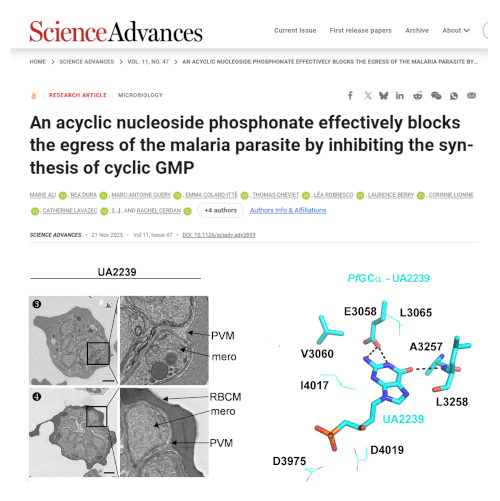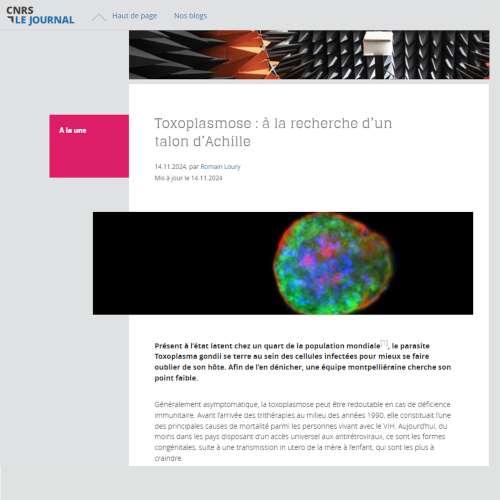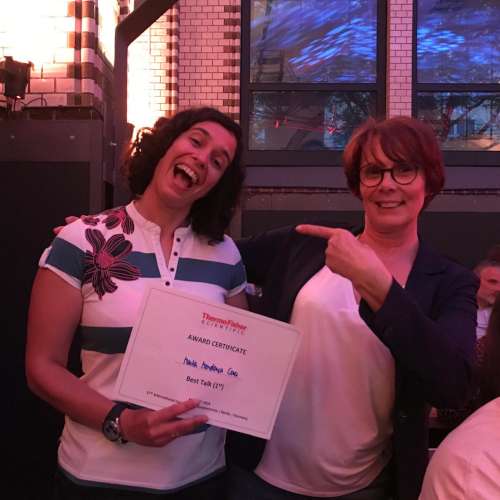LPHI News
February 2026
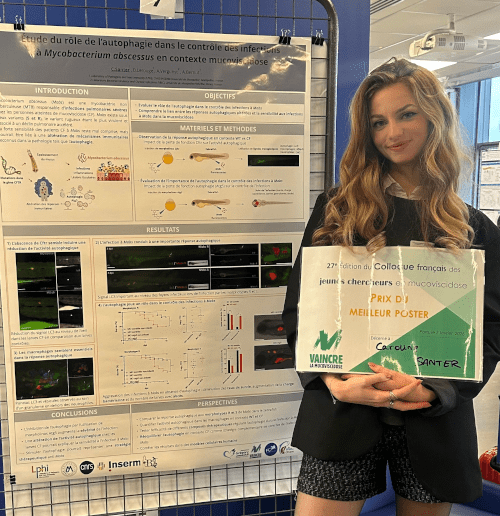
Best Poster Prize at the Cystic Fibrosis Congress of Vaincre la Mucoviscidose association!
Caroline Santer from Audrey Bernut’s group won the Best Poster Prize at the 27th Cystic Fibrosis Congress of Vaincre la Mucoviscidose, held in Paris in February 2026.
Congratulations!
November 2025
New article published in Science Advances by the Cerdan’s team
A new article dissecting the mechanism of action of a novel antimalarial compound that traps parasites inside red blood cells was just published in Science Advances by the team of Rachel Cerdan.
October 2025
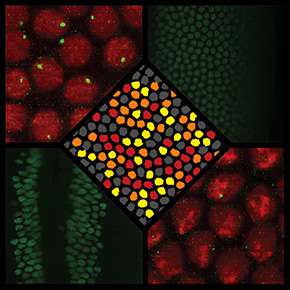
Joint work on the mechanisms of gene silencing during development published in Nature Communications and highlighted on the CNRS Biologie website
A joint work between the teams of Mounia Lagha (IGMM, Montpellier) and Ovidiu Radulescu (LPHI) highlights the complex mechanisms at play for gene silencing during early development, thanks to a combined approach mixing experimental biology and mathematical modelling.
The study was just published in Nature Communications and highlighted on the CNRS Biologie website.
JUNE 2025
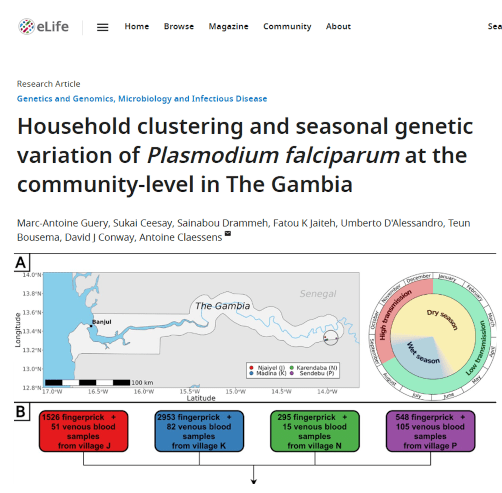
New article and highlight in eLife for the GATAC team
The GATAC team (Claessens team) generated one of the largest datasets of Plasmodium falciparum genotypes & genomes from asymptomatic infections in The Gambia over 2.5 years.
Key findings published in eLife:
• Genetic diversity is ‘regenerated’ each wet season
• Household members likely transmit to each other
• Chronic infections with the same parasite genotype can last >18 months
March 2025
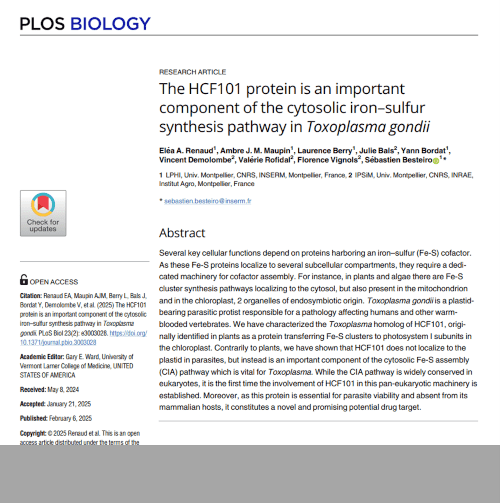
New article from the group of Sébastien Besteiro published in PLOS Biology
New article from the group of Sébastien Besteiro showing that, in an evolutionary twist, a protein typically involved in iron-sulfur cluster transfer in the chloroplast of plants is involved in the cytosolic iron-sulfur cluster assembly in Toxoplasma. Now out in PLOS Biology.
February 2025
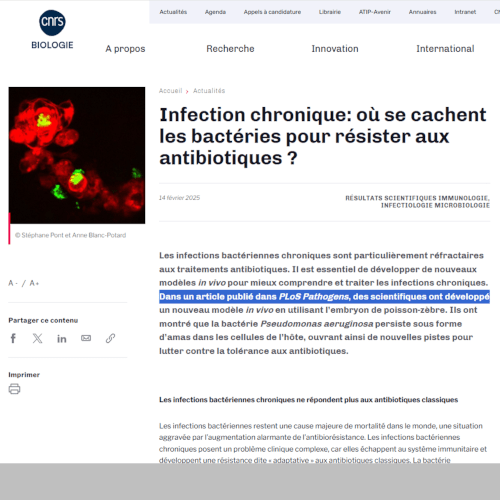
Recent work published in PLOS Pathogens by the group of Anne Blanc-Potard is highlighted on the website of CNRS Biologie.
The group of Anne Blanc-Potard has recently developed a novel in vivo model of infection by Pseudomonas aeruginosa using zebrafish larvae, allowing to study where persistent bacteria hide in order to escape to antibiotic treatments.
February 2025

New article (and cover !) from the group of Sébastien Besteiro investigating methyglyoxal metabolism in the apicoplast of Toxoplasma gondii, now out in Molecular Biology of the Cell.
January 2025
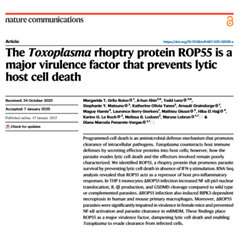
New article published in Nature Communications by Maryse Lebrun and Diana Penarete-Vargas elucidating the role of the rhoptry protein ROP55 from Toxoplasma gondii in preventing lytic host cell death
December 2024
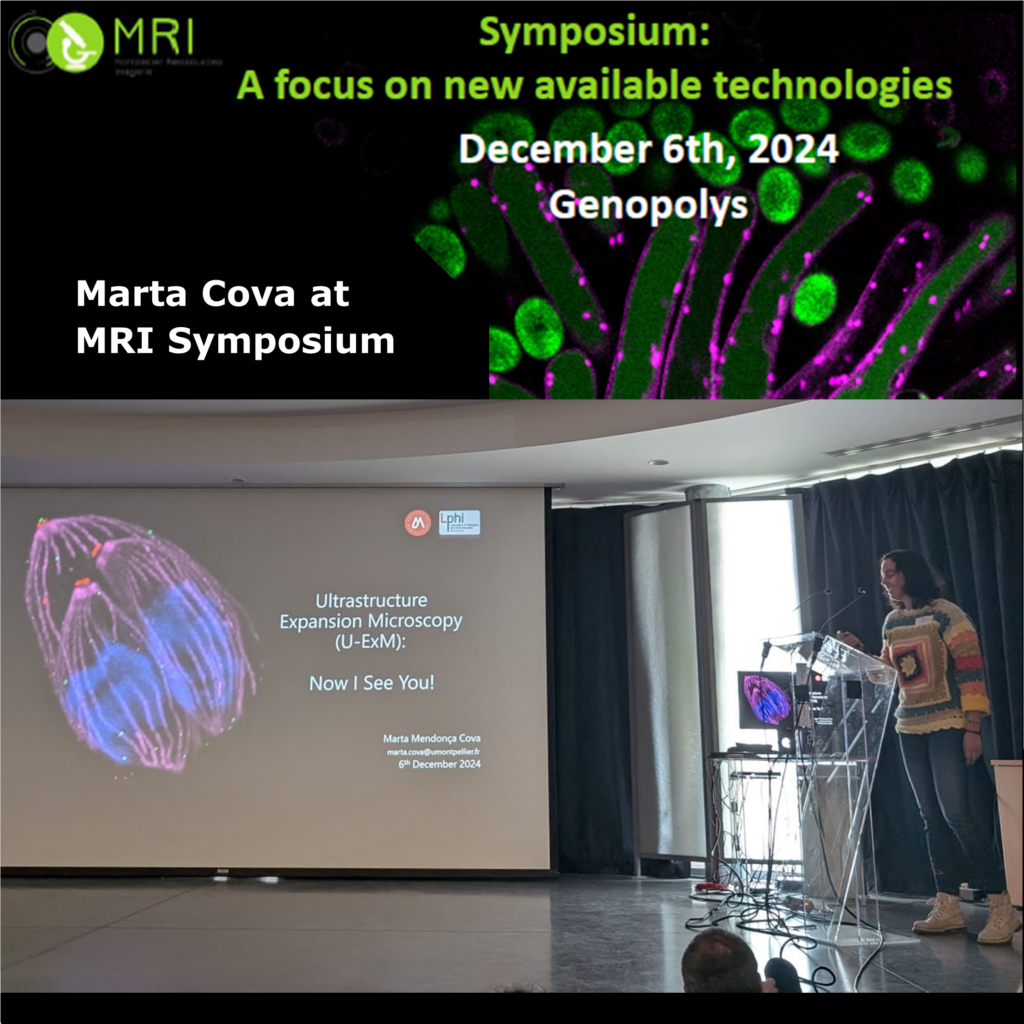
Marta Cova presented the latest microscopy development from LPHI at MRI Symposium
November 2024
The ToxoPlastidTarget project of Sébastien Besteiro is highlighted on the CNRS website!
November 2024
Congratulations to Ana Rita Batista Gomes who receives the 2024 Bronze Medal from CNRS!
The CNRS Bronze Medal rewards initial research that has established a researcher as a specialist in their field. This distinction is a form of encouragement to pursue research that is already well underway and proving successful.
November 2024
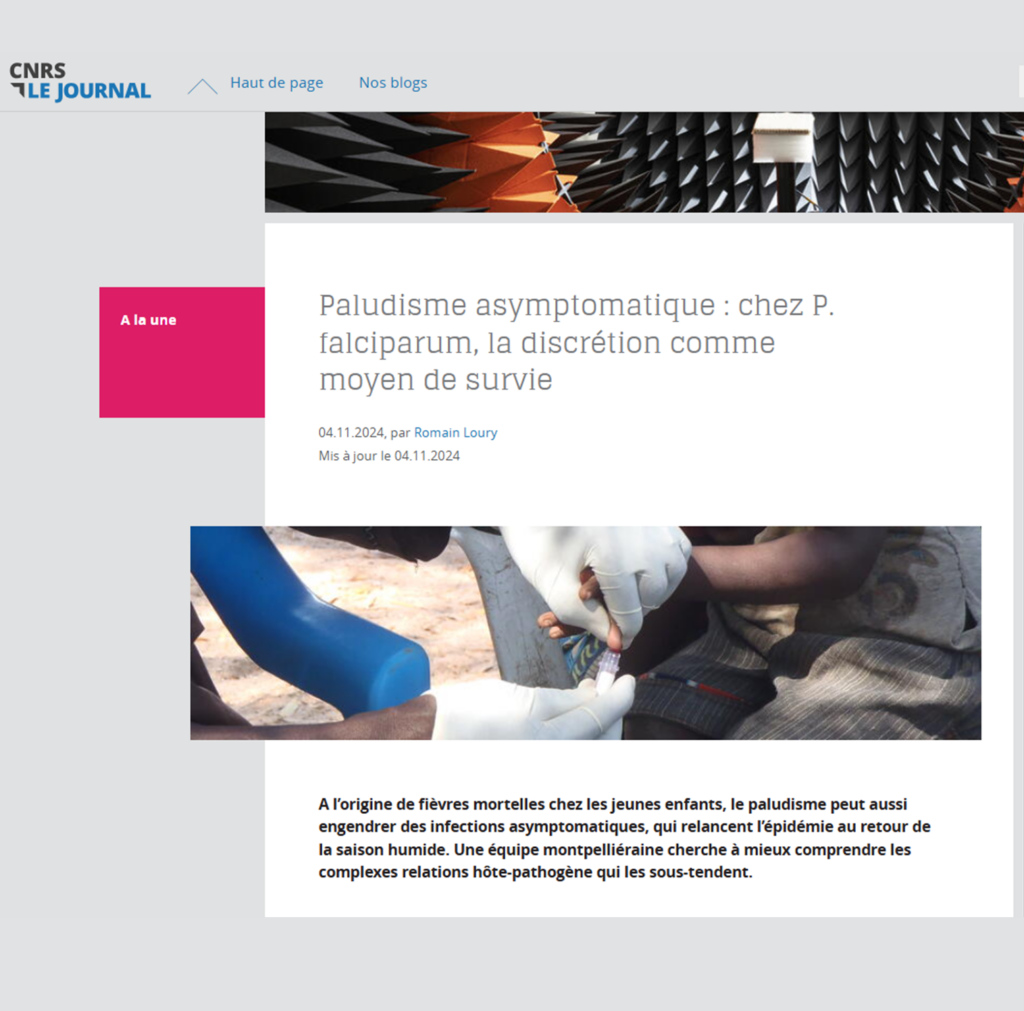
The MIRaGe project of Antoine Claessens is highlighted on the CNRS website!
JULY 2024
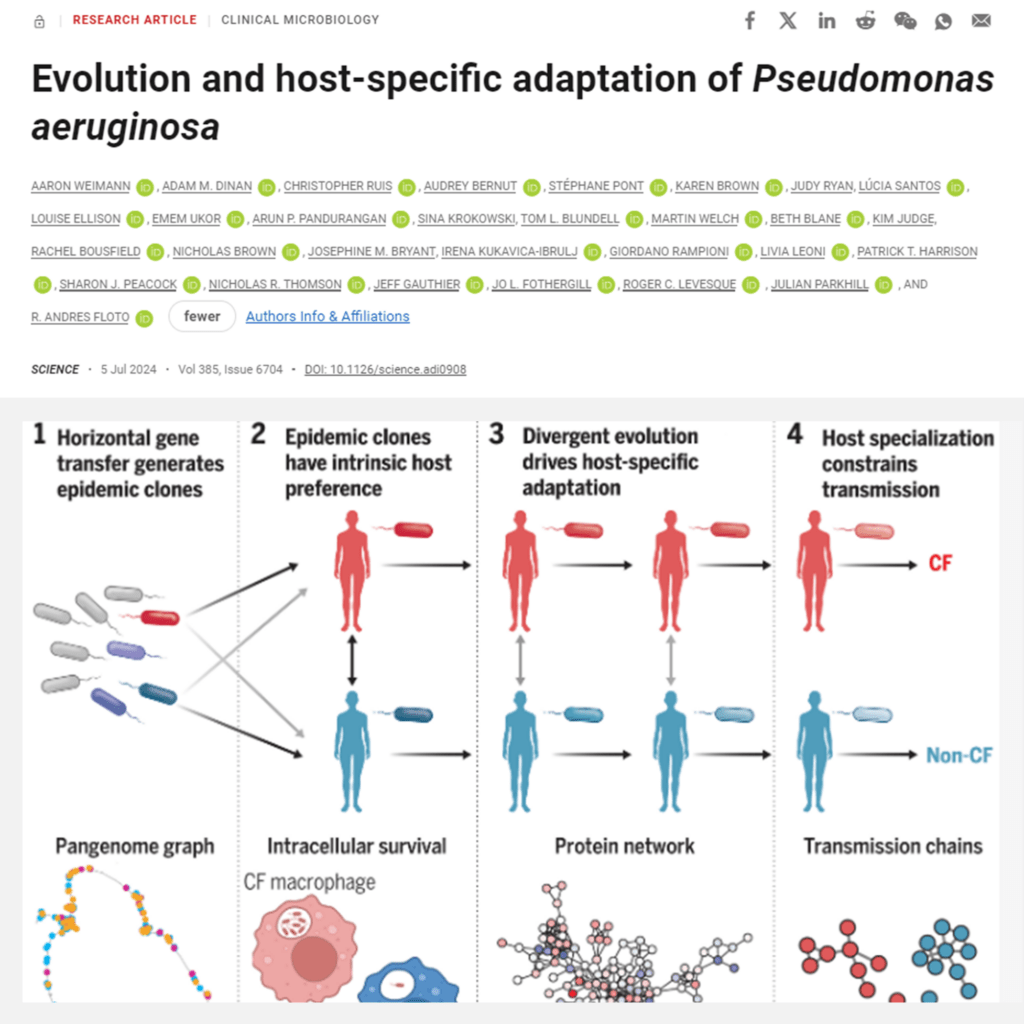
The molecular evolution history of Pseudomona aeruginosa in individuals with cystic fibrosis
A collaborative study between groups from the University of Cambridge and the group of Audrey Bernut at LPHI reports how Pseudomonas aeruginosa has evolved into a major human pathogen over the last 200 years, and how epidemic clones can specialize for a particular lung environment and have variable preference for infecting people with or without cystic fibrosis.
Using CF-zebrafish models developed by the group of A. Bernut and CF-macrophages, they think that the specific CF affinity P. aeruginosa clones are likely exploiting a CF immune defect, explaining their success in this niche.
This study was just published in Science.
JUNE 2024
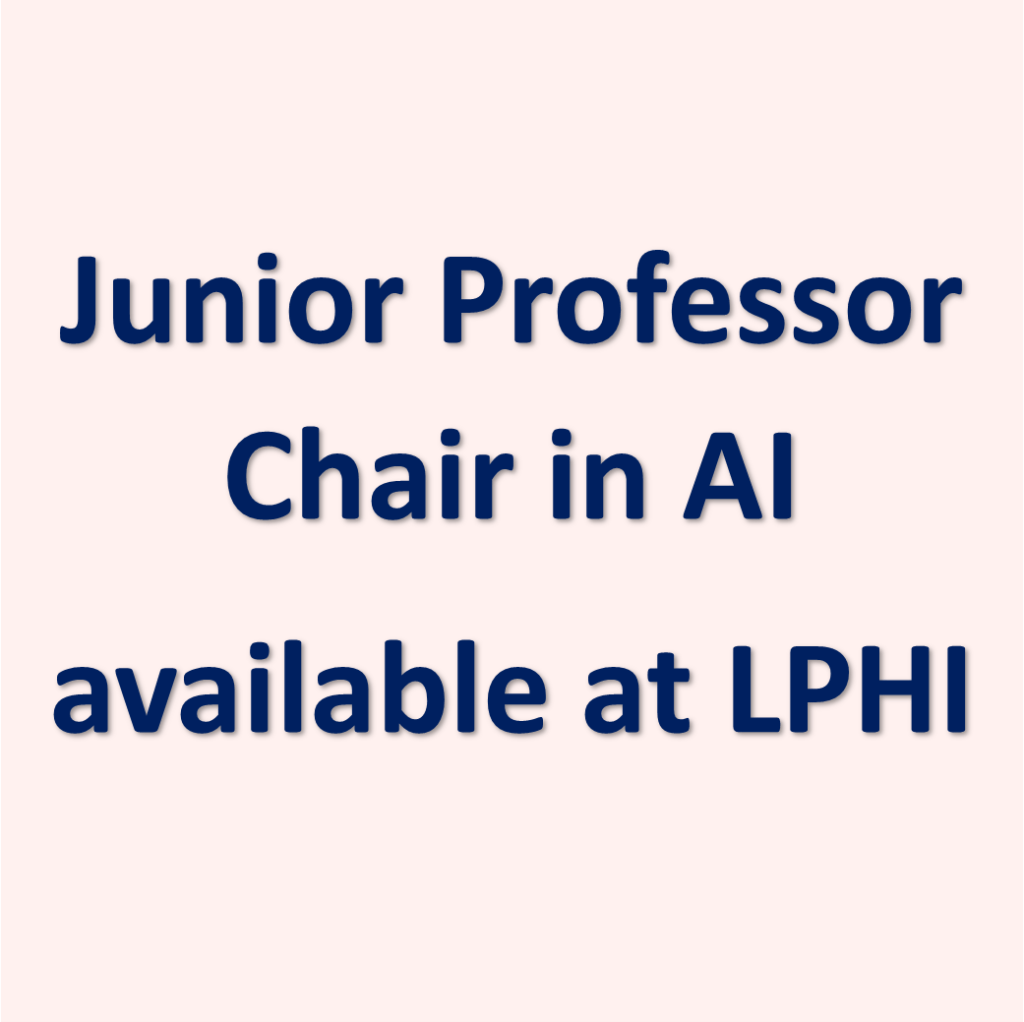
Junior Professor position in AI at LPHI
A junior professor position (tenure track) in AI and multiscale modeling in biology and bio-medicine is open in the Laboratory of Pathogens and Host Immunity at the University of Montpellier.
The junior professorship is an independent position, offering an accelerated track to professorship, reduced teaching duties, and attractive starting funding. The junior professor is expected to develop an autonomous and original research program in AI, oriented towards the exploitation of multi-omics and imaging data in infectiology, oncology, or fundamental biology. During the tenure track, teaching may be conducted in English.
Applications should be submitted on the Galaxie website from 16/05/2024 to 31/08/2024:
https://galaxie.enseignementsup-recherche.gouv.fr/antares/can/index.jsp
CPJ number 211
More details about this position can be found here https://systems-biology-lphi.cnrs.fr/CPJ/
Contact: ovidiu.radulescu@umontpellier.fr
MAY 2024
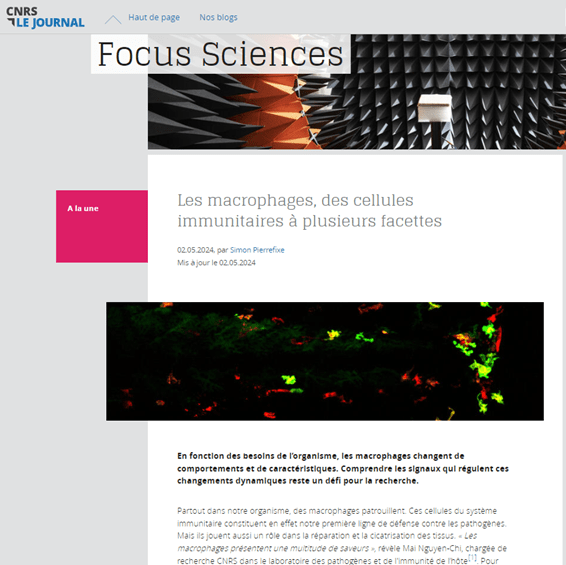
The Macrophage Dynamics project of Mai Nguyen-Chi is highlighted on the CNRS website!
MAY 2024
Best Oral Prize for LPHI at the 17th International Congress on Toxoplasmosis 2024!
Marta Cova and Maryse Lebrun win the 1st Best Oral Prize at the 17th International Congress on Toxoplasmosis that was held in Berlin in May 2024.
Congratulations!
MARCH 2024
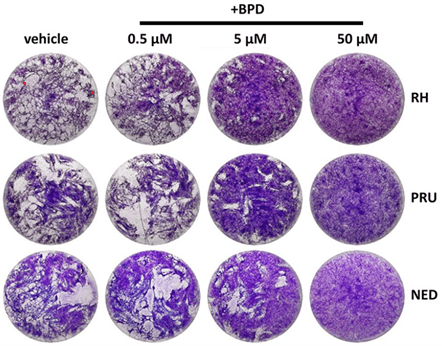
New publication in Virulence by the group of Sébastien Besteiro
The group has investigated the impact of iron deprivation on the viability and the metabolism of different Toxoplasma gondii strains and uncovered that cystogenic parasite strains are more likely to sustain this type of stress by converting into persistence forms.
February 2024
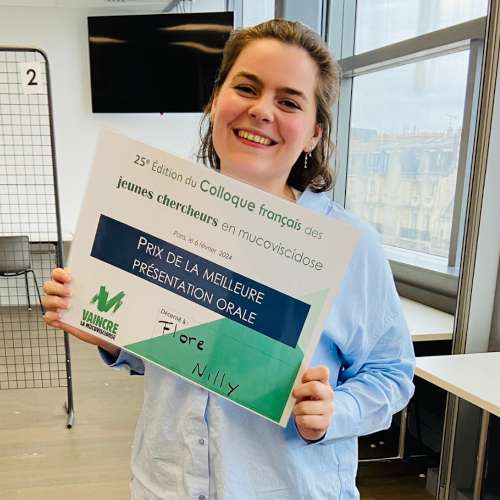
‘Colloque Français des Jeunes Chercheurs VLM’ in Paris
Flore Nilly from Anne Blanc-Potard’s group wins the ‘Best Talk’ award at the CFJC VLM 2024 in Paris. Congratulations!
January 2024
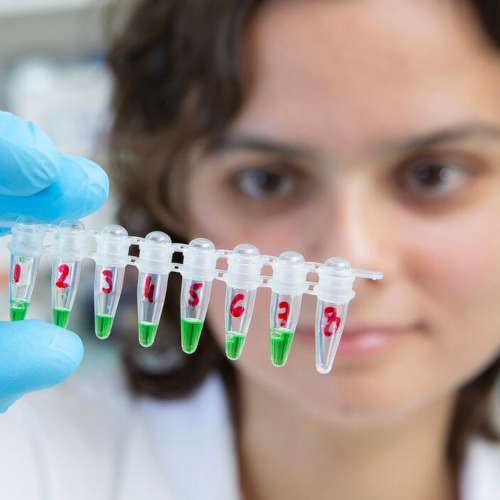
The ROAdMAP project of Ana Rita Gomes is highlighted on the CNRS website!
January 2024
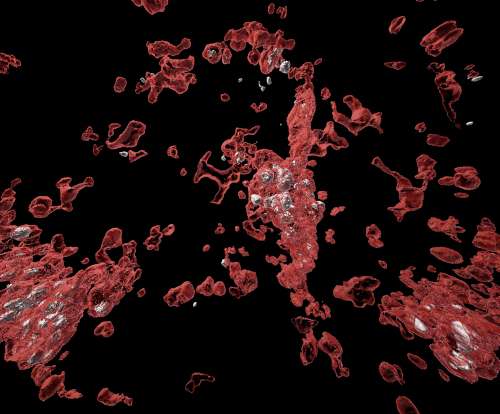
New publication in eLife journal by the group of M. Nguyen Chi
Illuminating the hiding place of Salmonella in living host – The group of Mai Nguyen Chi developed a new model of persistent infection in zebrafish allowing to visualize in live where Salmonella enterica establishes its niche to persist long-term in the host. This study showed that Salmonella persist in anti-inflammatory/ pro-regenerative motionless macrophages.
December 2023
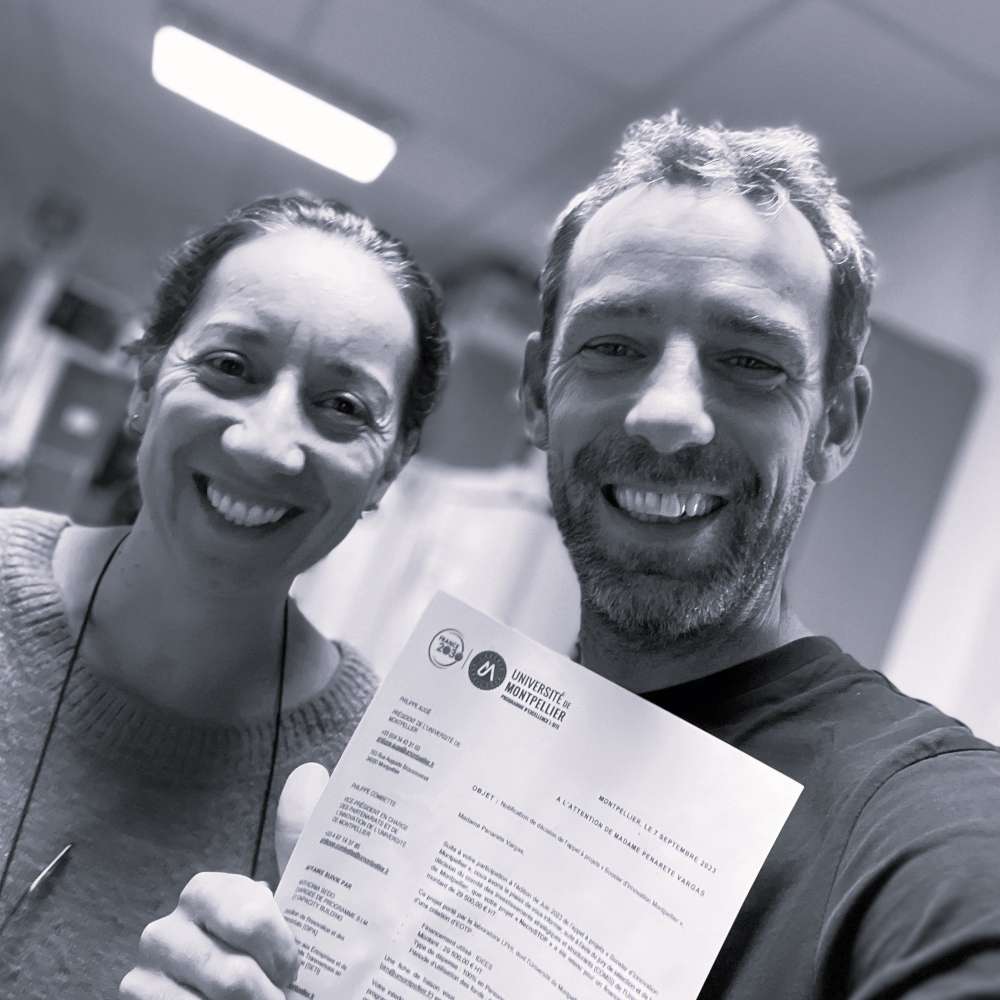
‘Montpellier Innovation Booster’ prize awarded at LPHI!
Diana Penarete and Arnault Graindorge have been awarded the ‘Montpellier Innovation Booster’ prize (€30,000) for their visionary project: NecroSTOP.
Their dedication to innovation and positive impact exemplifies Montpellier’s spirit of creativity and sets a promising course for the future.
November 2023
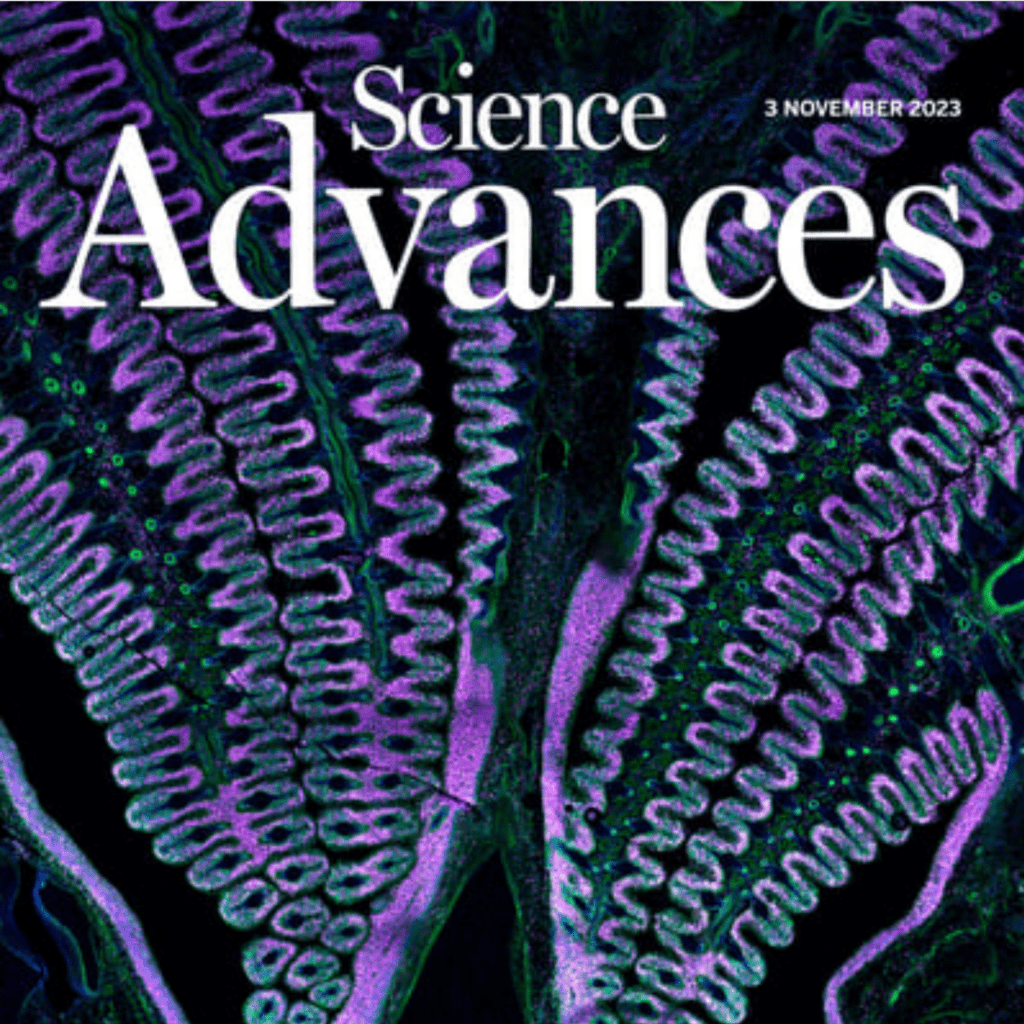
Novel lymphoid organ in the zebrafish, and other teleost fish
A collaborative study between groups from University of Oslo, INRAE, A*STAR, Wageningen University & Research, CNRS and the group of Mai Nguyen Chi identifies a new tonsil-like organ in fish which probably protect them from pathogens and suggests that the fish immune system is more sophisticated than previously thought.
The study was just published in Science Advances and made the cover of the November issue. It was also highlighted in a Commentary in Science.
October 2023

Prof. Thomas Otto from University of Glasgow joins the LPHI laboratory to start a new research group, thanks to a ‘Chaire ExposUM’ grant from University of Montpellier.
October 2023
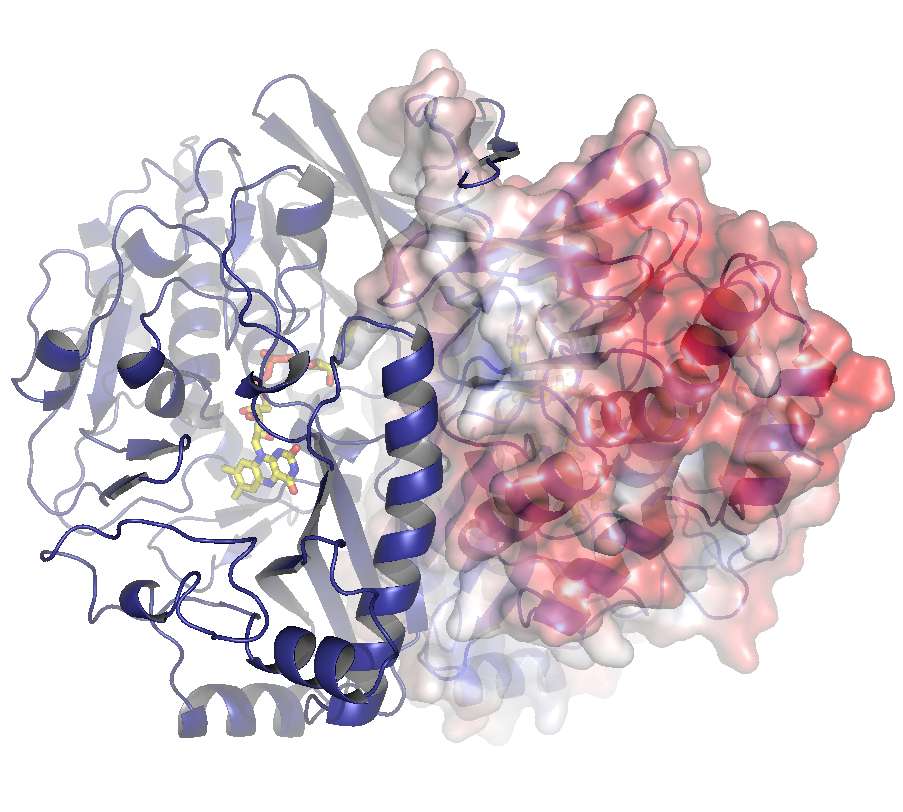
The group of Laure Yatime has elucidated the role of the IbeA protein, a virulence factor from the adherent invasive Escherichia coli (AIEC) strain involved in the pathogenesis of Crohn’s disease.
The biological function of this protein has long remained of debate. But this new study,conducted by PhD student Théo Paris, has allowed to demonstrate that IbeA function as a FAD-dependent oxidoreductase, thus permitting survival of the AIEC bacteria within the highly oxidative environment of the phagosomal compartments within host macrophages through the modulation of redox processes.
September 2023
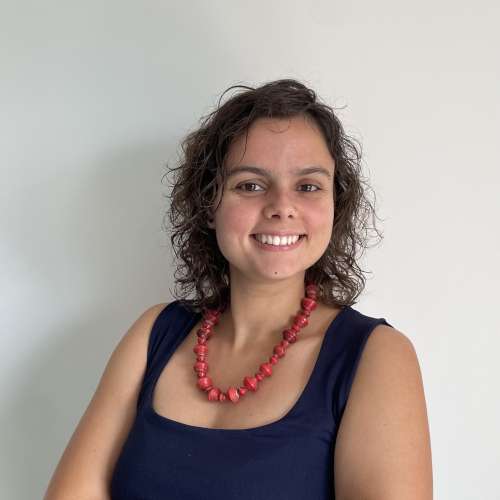
August 2023
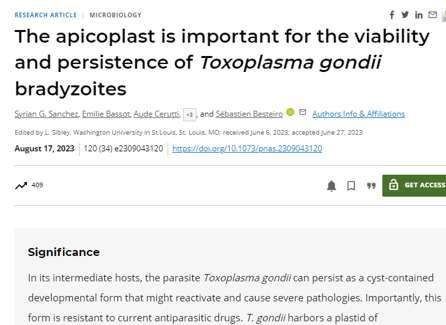
The group of Sébastien Besteiro has unraveled the importance of the apicoplast for the viability and persistence of Toxoplasma gondii in the bradyzoite stage.
This work, conducted by PhD student Syrian Sanchez, has been published in PNAS.
